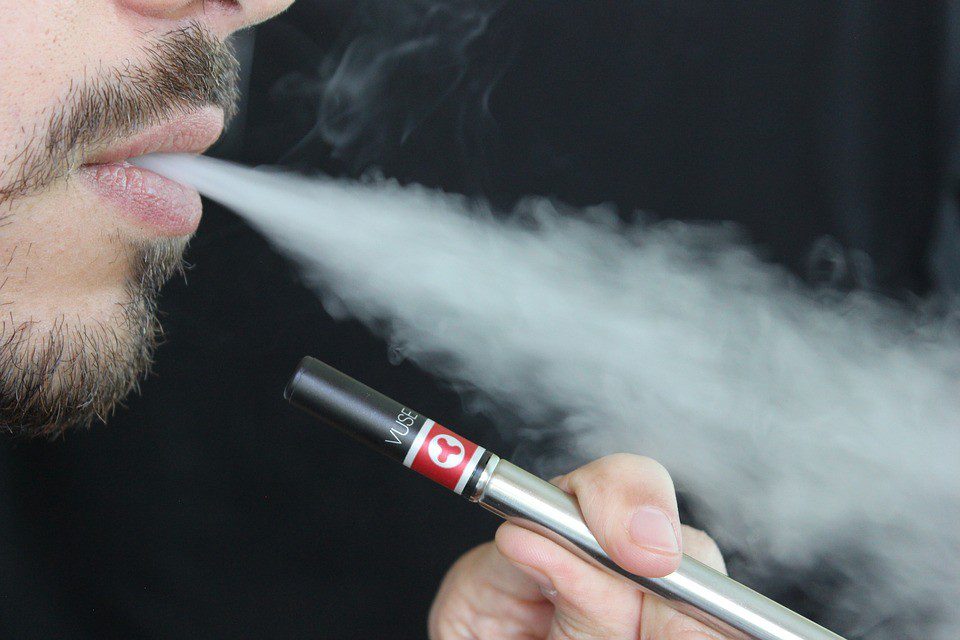
 With both the CDC and Health Canada issuing warnings about vaping over the last little while, we’ve seen our readers’ concerns increase, and quite a few questions have come in.
With both the CDC and Health Canada issuing warnings about vaping over the last little while, we’ve seen our readers’ concerns increase, and quite a few questions have come in.
We decide to ask expert Dr. Joshua Mansour, hematologist/oncologist working and in the field of hematopoietic stem cell transplantation and cellular immunotherapy in Los Angeles, California, a few questions about it.
Here are our 5 questions about Vaping.
1. Why is vaping so common among underage people?
2. How much damage can frequent vaping do to underage people?
Although part of it is yet to be understood it its entirety, which is scary, there are already several known. A countless number of these products include a variety of chemicals that have not been tested. Joseph Allen, an environmental scientist at Harvard University, co-authored a study published this year in which they tested over 35 cartridges and 35 different electronic-cigarette liquid products. In many of these they found microbes and microbial toxins (some of bacteria and fungus) that can have adverse respiratory effects.
Patients thus far have experienced shortness of breath, fatigue, weight loss, coughing and even severe lung disease leading to lung collapse. Both the long and short-term repercussions are not fully understood at this time as the FDA does not require the manufacturers to list all the ingredients in these devices. Therefore, there may be unknown carcinogens that may increase a person’s overall risk to cancer compared to someone that does not smoke.
In addition to the several lung issues caused and being investigated by the CDC, the U.S. Food and Drug Administration is now investigating over a hundred reports of neurological conditions, including seizures, following e-cigarette usage. Many of these devices contain extremely high concentrations of nicotine, which we know can have both and addictive and detrimental effect, even at low doses. Several of the symptoms of nicotine include, but are not limited to tremors, increase in heart rate, profuse sweating, nausea, vomiting, dizziness and even seizures. Furthermore, the euphoric effect of nicotine lasts for a short period of time, leading individuals to use it more frequently and later require more of it to receive this buzz.
3. Why do people think that vaping is safer than smoking cigarettes?
Many of the possible side effects seen with conventional cigarette smoking are now marketed and outwardly displayed on packaging to the public. This is not the case with electronic cigarettes and devices, probably because not enough time has passed to show a correlation or causal relationship. This doesn’t mean that the it doesn’t exist though. It took decades before doctors believed that there was a case against cigarettes. It is now known to be the deadliest artefact in the history of human civilization.
4. What are some ideas that you have for limiting the underage access to vaping products?
In terms of limiting underage access this is something that I am not as experienced in as a physician. The FDA and other regulatory boards, must take the necessary precautions and implement the necessary restrictions now that it has been proven to be detrimental to people’s health, especially before this gets worse.
5. What do you recommend that people should do if they are already addicted to nicotine through vaping?
If patients are addicted to nicotine through vaping at this time they should discuss this with a healthcare provider. Several resources and steps to help patients with addiction can be discussed. Some of these include a nicotine gum program or a patch, similar to what is used with patients addicted to traditional tobacco cigarettes.
|


 Dr. Joshua Mansour is a board-certified hematologist/oncologist working and in the field of hematopoietic stem cell transplantation and cellular immunotherapy in Los Angeles, California.
Dr. Joshua Mansour is a board-certified hematologist/oncologist working and in the field of hematopoietic stem cell transplantation and cellular immunotherapy in Los Angeles, California.











